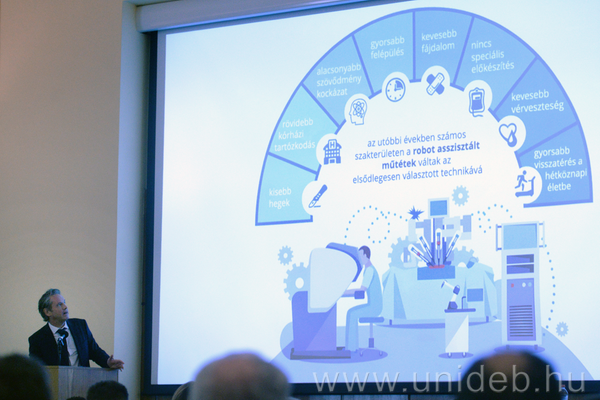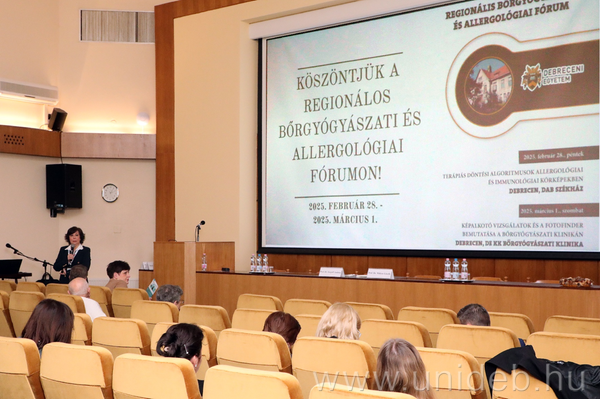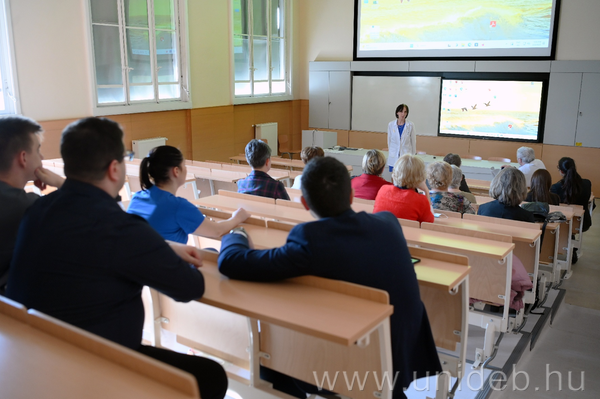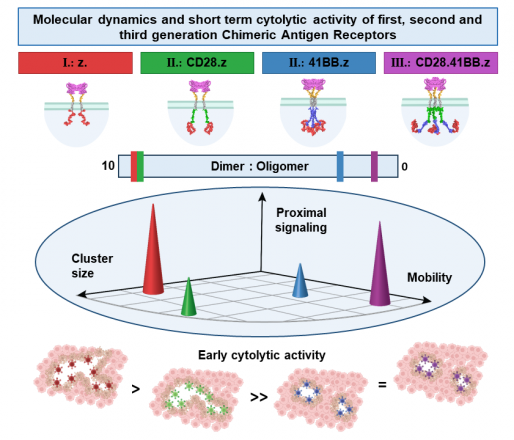07 May
A super-resolution microscope used for biomedical research
A super-resolution laser microscope has been used recently at the Faculty of Medicine of the University of Debrecen primarily in cancer research and skeletal muscle research. It can also be applied to observe the function and interactions of biological macromolecules. This piece of equipment is already being put to use by several institutes of the faculty in a variety of research projects but, in the future, it could also play an important part in scientific collaborations with national and international pa
15 Apr
Overview of the First Year of Da Vinci Robot-Assisted Operations at Debrecen University
The Department of Surgery of the University of Debrecen Clinical Centre organized a symposium entitled Robotic Surgery for Everyone (Robotsebészet mindenkinek) on the experiences gained since the launch of the Robotic Surgery Centre last April. The event, held at the Headquarters of the Debrecen Regional Committee of the Hungarian Academy of Sciences (DAB), was dedicated to a discussion of the place, role and results of robot-assisted surgery in clinical practice in Debrecen, including an overview of the p
09 Apr
Student from UD Kossuth Secondary School Wins Brain Bee Domestic Round
A student from the Kossuth Lajos Secondary and Primary School of the University of Debrecen won the Hungarian final of Brain Bee, the prestigious international neuroscience competition for secondary school students. Áron Pankucsi-Versényi will represent Hungary in the world final of the contest in the autumn.
03 Mar
A celebration of dermatology at the University of Debrecen
In Hungary, it is only the Clinical Center of the University of Debrecen that can offer a state-funded FotoFinder-assisted examination for the early detection of melanoma. The new imaging device capable of providing such a chance was presented to a professional audience at this year's Regional Dermatology and Allergology Forum. At their two-day meeting, which started on Friday, the attending specialists also discussed the most recently available therapeutic options for allergic and immunological diseases.
21 Feb
Revolutionary gene therapy eye surgery procedure at the University of Debrecen
The University of Debrecen Clinical Centre has become the first in Hungary to perform an innovative gene therapy eye surgery for the long-term treatment of wet macular degeneration, a retinal disease affecting many people, in the framework of clinical trials. This new therapeutic approach could not only represent a breakthrough in preserving vision, but could also significantly improve patients' quality of life by reducing the need for ongoing treatments.
19 Feb
Outstanding staff of the Clinical Centre honoured
Nine health workers of the Clinical Centre of the University of Debrecen were honoured for their high quality and exemplary professional work on Wednesday at a ceremony held on the occasion of the Hungarian Nurses' Day. At the event, in addition to the Outstanding Worker Medal and the Reward Award, Presidential Letters of Commendation and the titles of Chief Clinical Physician were also presented.
04 Feb
Fighting to reduce lung cancer
In Hungary, around 10,000 new cases of lung cancer are diagnosed every year and around nine thousand people die from the disease, even though there is a good chance of curing lung cancer if it is detected at an early stage. The latest research findings and state-of-the-art treatment options for lung cancer were discussed at a professional symposium held on Monday at the Pulmonology Clinic of the University of Debrecen Clinical Centre in connection with World Cancer Day.
31 Jan
International cooperation for promoting vaccination coverage
Several representatives of the University of Debrecen are also participating in an international research and curriculum development program on vaccination headed by WHO’s (World Health Organization) Regional Office for Europe. The chief objective of this project is to increase vaccination coverage. Staff members from Department of Public Health and Epidemiology recently met with a WHO delegation at our university to discuss the details of this project.
18 Jul
Effects of the membrane lipid environment on the efficiency of cell-penetrating peptides
Effects of the membrane lipid environment on the efficiency of cell-penetrating peptides
30 Jun
CD28 and 41BB costimulatory domains alone or in combination differentially influence cell surface dynamics and organization of chimeric antigen receptors and early activation of CAR T cells
Costimulatory domains influence cell surface dynamics and organization of chimeric antigen receptors as well as early activation of CAR T cells.


